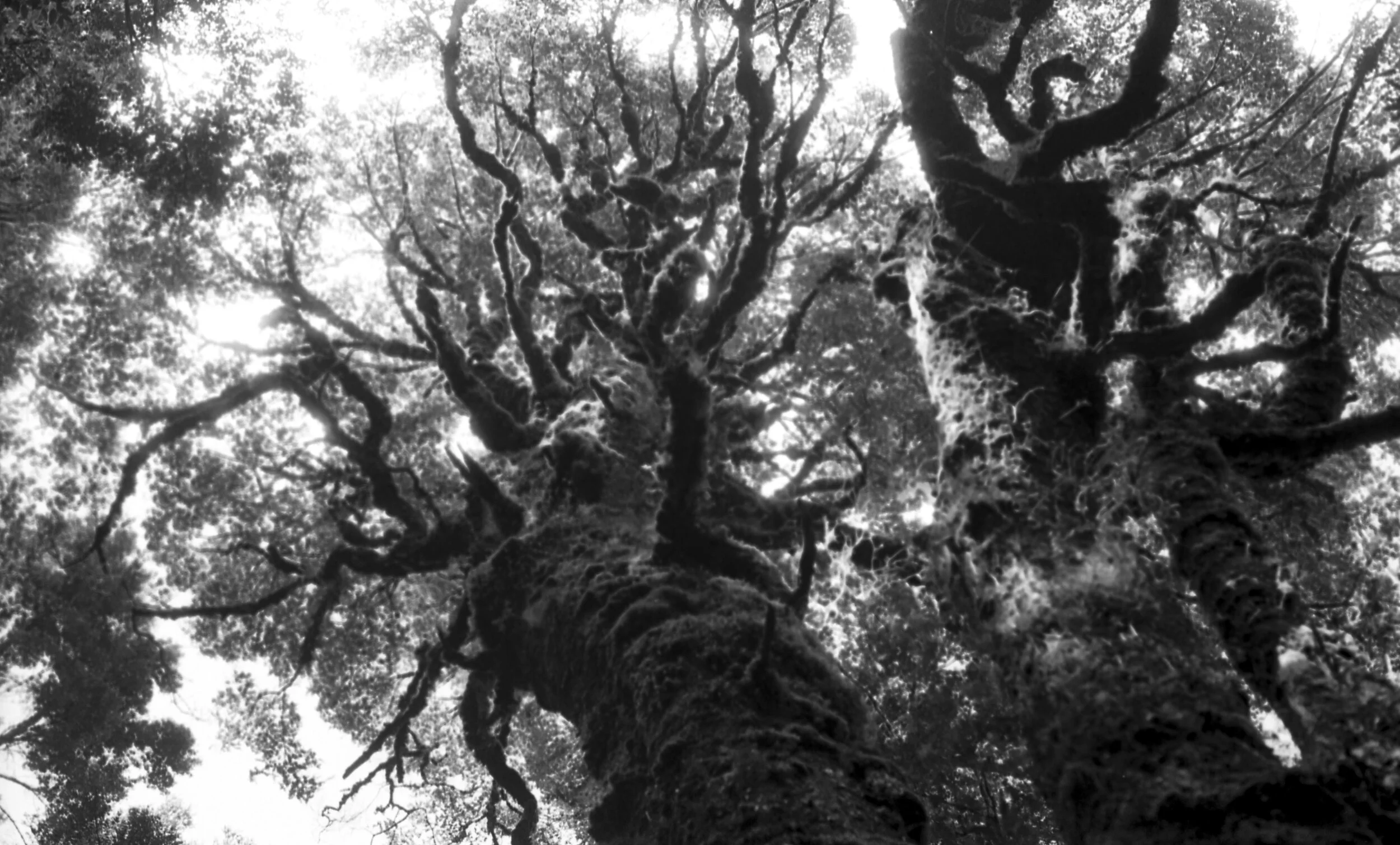… lies the land of trees and moss.
‘Mossy Trees’, Feb 2019, Pentax MX, Triax 400,
By its nature, a mountain can provide a view but it can just as easily block the view. If we stand on top of a mountain, the world may unfold before our feet, but if we stand at the bottom of a mountain, our view is obscured and we are left wondering what may be on the other side.
Mountains can act either as an opportunity or as a barrier. They can grant us new perspectives, or stop us from reaching new ones. On one side of a mountain range we may find something we cannot find on the other side. Partially, this is because mountains make their own climate, and conditions for life may be quite different to the other side, creating distinct flora, fauna and fungi communities. Some species may be unable to cross from one water catchment into another, creating specific genetic traits that are best suited to that particular micro climate or environment.
‘Tangled Terrain’ Feb 2019, Pentax MX, Triax 400.
In this day and age, it is hard for us to imagine not being able to cross natural boundaries. Collectively, as a species, we have been to the moon and back, down to the bottom of the deepest oceanic trench, and to the top of the tallest peak. It is now a routine (although rather expensive) exercise to summit Mt Everest, or to visit the South Pole. Within a single lifetime, our abilities to access difficult places has increased manifold. Yet it wasn’t that long ago that humans lived out most of their life within a single region of the earth, restricted to a relatively small locality.
‘Serpentine River’ 2018. Pentax MX, Triax 400.
Within the South-West wilderness of Tasmania, there would be endemic species of certain plants, animals and fungi that are restricted to a single water catchment area, having been unable to cross the steep and formidable ridges that rise up from the valleys.
Down where the rivers flow, the vegetation is thick and plentiful, but as elevation is gained, the rainforest gives way to buttongrass and the associated fire adapted eco-systems. This means that certain species are likely to remain within the same valley without ever crossing into an adjacent water catchment.
‘Quartzite ridgetop and the view down at the Pedder impoundment’, Pentax MX 2018, Triax 400.




